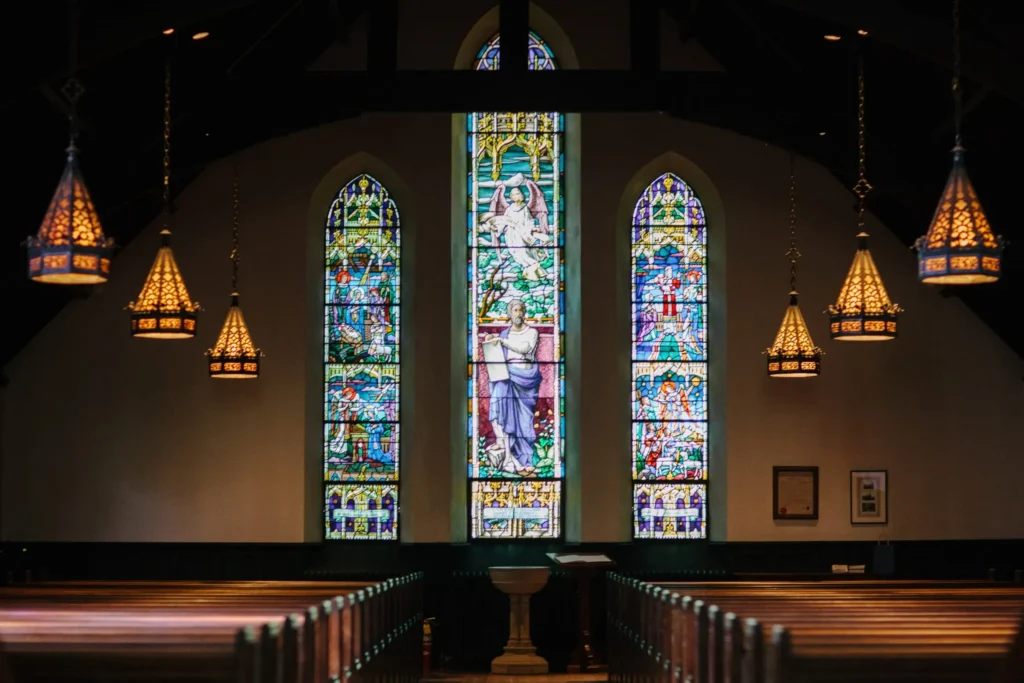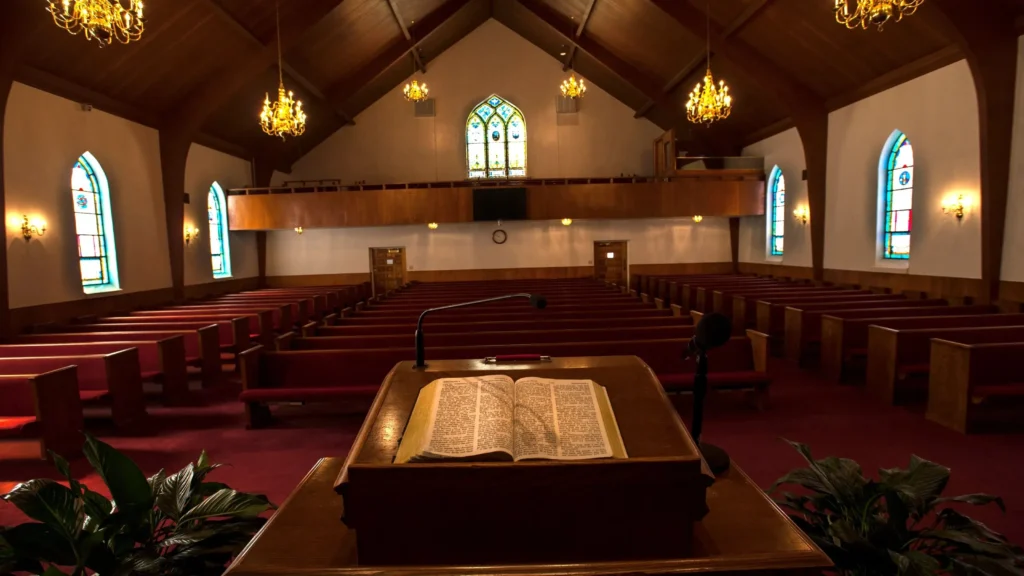Have you ever attended a church that feels toxic and disconnected from God? Do you want to know the potential signs of toxic churches? Keep reading to know the signs of toxic churches and how to stay away from them.

A church is a place of spiritual growth, community support, and love.
Most Christians find comfort and peace when they find the right church that aligns with biblical doctrines.
Unfortunately, there are some churches whose doctrines and teachings are considered toxic to the member’s spiritual growth. But then, how can a person tell when a church is toxic and unsafe?
Here, we will outline the potential signs of toxic churches and how their doctrines affect their members.
Signs of Toxic Churches

Here are potential signs of toxic churches:
1. They Often Exhibit Authoritarian Leadership
One of the signs of toxic churches is that they often exhibit authoritarian leadership.
In a Toxic church, power is concentrated in the hands of a select few, usually charismatic leaders or a dominant group.
Also, in this type of church decision-making is centralized, dissent is discouraged, and transparency is lacking.
This authoritarian structure can lead to abuses of power, manipulation, and a stifling of individual autonomy within the congregation.
2. A Toxic Church Lacks Accountability
Accountability is a cornerstone of healthy church communities, but a toxic church, they lack accountability.
In this church, leaders operate without oversight or consequences for their actions. Sometimes this behavior leads to unchecked behavior and fosters an atmosphere of manipulation and exploitation.
3. A Toxic Church Have Excessive Control Over Members
Toxic churches may exert excessive control over various aspects of members’ lives. This control may extend beyond spiritual matters to personal choices, relationships, and even career decisions.
Members may feel pressured to conform to strict guidelines set by church leadership. When this is done in a church it can lead to a loss of personal autonomy and individuality.
4. They Try to Isolate You from Outsiders
Healthy churches encourage engagement with the broader community and promote inclusivity.
In contrast, toxic churches may discourage interaction with outsiders, instilling an “us versus them” mentality.
This mentality sometimes isolates members from diverse perspectives and limits opportunities for growth and understanding.
5. A Toxic Church Emphasis on Guilt and Fear
Guilt and fear tactics are commonly employed in toxic churches to control and manipulate members.
Sermons and teachings consistently emphasize messages designed to induce feelings of guilt or instill fear in the members.
This act can create a culture of shame and obedience rather than one of love and acceptance.
6. They Engage in Serious Financial Exploitation
Financial exploitation is a significant red flag for toxicity in churches. If a church places undue emphasis on financial contributions, it’s a sign you are in a toxic church.
Sometimes, this type of church pressures members to give beyond their means, or misuses funds for personal gain.
When a church exploits its congregation and betrays the trust of its members, it is not safe to be in that church.
7. A Toxic Church Suppress Member’s Questions and Doubts
Healthy spiritual communities welcome questions and doubts as part of the faith journey, encouraging open dialogue and exploration. In contrast, toxic churches suppress questioning or doubt.
They foster an environment where members fear expressing their uncertainties and challenging the status quo.
8. They are always Judgemental
Toxic churches often cultivate a judgmental culture where members feel scrutinized and condemned for their actions or beliefs.
This lack of empathy and understanding can lead to intolerance. Also, it can lead to divisiveness, and spiritual harm, hindering personal growth and stifling authentic expression.
In conclusion, recognizing signs of toxicity within a church is crucial for maintaining spiritual well-being.
Related Searches


